this week your invitation: to tap into your visual intelligence to envision reality
illusions of the eyes and brain
learn more about vision and perception to live beyond our everyday experiences
a ted talk with Donald Hoffman and an introduction to his work
how to nurture your vision in nature
therapy for vision
daily eye hacks
“Use the light that is within you to revert to your natural clearness of
sight.”
-Lao Tzu
tapping into your visual intelligence to envision reality
Our primary sense is VISION and one way of learning more about how our brain and mind sees our version of reality, is to see how we react to visual illusions, something l studied in depth through my University research.
The brain has two hemispheres, each divided into four lobes. Each lobe is (largely) responsible for different functions. For instance the frontal cortex is responsible for decision making and planning; the temporal lobe for language and memory; the parietal lobe for spatial skills, and the occipital lobe which is entirely devoted to vision and the place where visual illusions happen.
Now look at the image at the top of this post what do you see? perhaps a series of ripples but why? This is because of the seamless pattern of circles.
Optical Illusions deceive our brains and play tricks on our eyes due to the array of patterns, light all creating a false sense of reality as the image our brain processes isn’t actually what is in front of us.
philosophy and vision
Philosophy and vision are more closely linked than you may have imagined. Our perception of ourselves and the world around us are formed from perception and cognitive experiences from childhood.
Lets get clear, pardon the pun! Vision can be used/talked about in two primary ways, firstly, how we see things to navigate our daily lives and out in the world. Secondly, how we want to envision ourselves and our lives to be. However, just like the mind, it is worth remembering that our eyes can also deceive us as well as aid us. Vision gives us our perceptions which ultimately guides our behaviours. Therefore, understanding how we construct our world and can influence our choices.
my journey with visual perception and consciousness
Gazing out of the window, into the beautiful surroundings of my campus at Cambridge, l found myself wondering how l got there. Coming to Cambridge as a mature student was partly due to my own love of philosophy and psychology and wanting to understand more about the human condition from a scientific perspective, the other to learn more about my mother’s Alzheimer’s. However, l could not have anticipated what would come next - studying Vision Science!. I remember the first day so well, because we had the most handsome looking Australian walk in and announce that he would be teaching us the statistics and vision modules. His passion for both topics was contagious. It was during this time that l was also introduced to the work of Donald Hoffman in Visual Perception and Consciousness.
Whatever reality is, it’s not what you see.
- Professor of Cognitive Science Donald Hoffman
why we should be using philosophy, yoga and science to understand our reality
Having studied about consciousness from the eastern teachings and practices l found it interesting to look at what the actual science had to say. Fascinated by Hoffman’s lab experiments, here was a cognitive neuroscientist that came to the table with a mindful alternative approach that blended science with philosophy, l was hooked.
In Yoga we offered tools and insights to still the fluctuations of the mind. In these teachings we are also made aware of the veil of illusion (maya in Sanskrit and yoga philosophy), which are where our deceptions, and perceptions reside that influence our behaviours. A yoga practice or any mindful/noticing activity for that matter can help us cultivate some space between the fear based and destructive chatter of the mind referred to as ‘Chitta’ referenced throughout the 8 Limbs of Yoga Philosophy by Patanjali, especially in the first chapter on pure awareness.
A quieting of the mind that brings clarity can also have an impact to refresh, renew, and improve our vision and for our life. Meditation and Mindfulness in a sense is giving our senses permission to just be rather than overloaded. As result better clarity of and in the mind, can often improve what we see. Noticing the greater details of life around us bringing us a greater appreciation in the process.
Science now however, explores and asks another set of fundamental questions including ‘how can we trust what we really see? and ‘how do we construct /reconstruct our reality?’ Why is this important? Well because our perceptions guide our behaviours.
Evolution has shaped our sensory systems (such as Darwins Theory) to navigate and survive in the world but to see reality as it is objectively but what if to see object reality is actually zero? And what if l told you that our senses are a just a cognitive filter which does the opposite to what we think? Meaning they might be actually preventing us from knowing the true nature of reality. One of the classic experiments that highlights how we are visually fooled is one of the first l conducted on starting University, was the hollow "Einstein Face" mask experiment. A simple but timeless example of how our perception works because we live in a 3d world.
Living in a 3d world we interact in linear time with material objects, where our senses contribute to our perception and shape how we see reality. Science and the work of Hoffman focuses on recognising a fourth dimension - time and space.
Yoga and some forms of spirituality teaches us how we might be able to live beyond the 3D experience, offering practices and insights to transcend limitations and to step beyond our conventional understanding of reality. Spiritual teachings see the 5D as our natural state of being as spiritual beings. It's seen as the ultimate goal—a state of oneness and connection with everything, which again Hoffman talks about in his exploration.
To hear more you might want to check out Donald’s TED talk from 9 years ago, more relevant now focusing on time and space and consciousness.
Do we really reality as it is?
buddhism, yoga and vision
Bearing this concept in mind it is easy to see why there might be a crossover from science into yoga and buddhism in regards to how we envision the world. Especially when we consider the important role of the ‘pineal gland’ which in yoga is known as the ‘third eye’, located in the centre of the forehead and is our seat of intuition, awareness and spirituality. In vision science this organ in the brain is also responsible for coding the light that enters our eyes. Another equally important part of the process is that when this happens it automatically stimulates the brains consciousness of ‘perception’.
The crossover then into eastern philosophy is that it is believed that when light enters and kick starts your metabolic process in the body, our root cause of unclear thinking and vision becomes evident. Meaning our body remembers how we see, does this therefore mean the same as removing the veil of illusion (maya) to uncover the real nature of reality?
Therefore, the real question from this piece today is, if we spend more time and research on exploring beyond our everyday experiences can we cultivate greater possibilities and freedom in how we live?
“When you shift your focus from the physical world to the world of possibilities, everything changes.” - Bashar
Engaging Vision and Your Brain (in nature)
Being in/and or exercising in nature, green open spaces, beaches, being by and on the water all have therapeutic benefits for our bodies and minds and especially our vision.
Whilst it’s worth remembering that you should never look directly at the sun without protection, natural sunlight especially first thing in the morning is particular good for eyes and also setting our circadian rhythms. However, looking at the sun without protection can accelerate any cataract conditions, as they thrive in UVB light.
That aside there are other important factors to consider in terms of what nature provides visually speaking, the lack of straight lines and urban shapes in particular giving our vision a momentary respite. Visual variety in the scenery and the saturation of colours has an impact to how we see.
therapy for vision
Vision can often help inform us of what needs to be addressed behaviourally as well as anatomically therefore, looking at the wholeness of you in other words (the whole picture of your life) and not only the symptoms can help determine the changes you may need to heal. Integrated Vision Therapy takes a holistic approach to identifying the causes of vision problems and developing noninvasive, natural strategies for treatment, including clear, easy-to-follow exercises, diets, and changes in daily habits.
daily eye hacks
When l am out on my eye clinics (normally 2 days a week) here are few simple hacks l give to my patients:
blink -
Blink around 10 times very quickly.
Close your eyes and relax for 20 seconds while taking your attention to your breath.
Repeat this exercise about five times.
palming -
Sit quietly with your eyes closed and take a few deep breaths to relax.
Rub the palms of your hands vigorously until they become warm and place them gently over your eyelids.
Feel the warmth of the palms being transferred onto the eyes and the eye muscles. You will feel instant relaxation.
Keeping the eyes closed, lower your hands and feel the dryness fade away gradually.
Once again rub the palms and repeat the process at least three times.
near and distant viewing -
Standing or sitting with a bent elbow look at the tip of your index finger then look over it and out to the horizon.
Alternate back and forth x 10.
use nature vision -
if you wear glasses and/or contact lenses have a half a day or day when you don’t wear either! Use your nature vision to exercise your eye muscles rather than just putting a refractive lens in front of your own lens.
Thank you for being here, reading, listening and sharing my work. I hope you may benefit in some way from the insights and practices provided to help you navigate your personal and life’s ever changing landscape.
Nourishing Life is a combination of a contemplative podcast exploring the curiosities and complexities of life, providing various insights from science, nature, zen & various philosophies to help heal and inspire longevity. All of this coming to you from my floating lodge on the water in Cambridge, England.

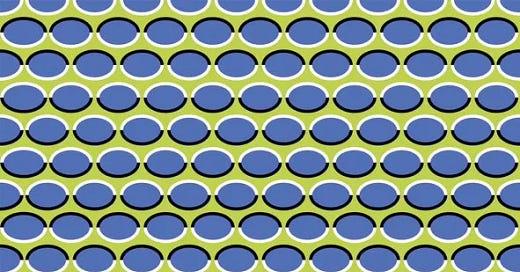




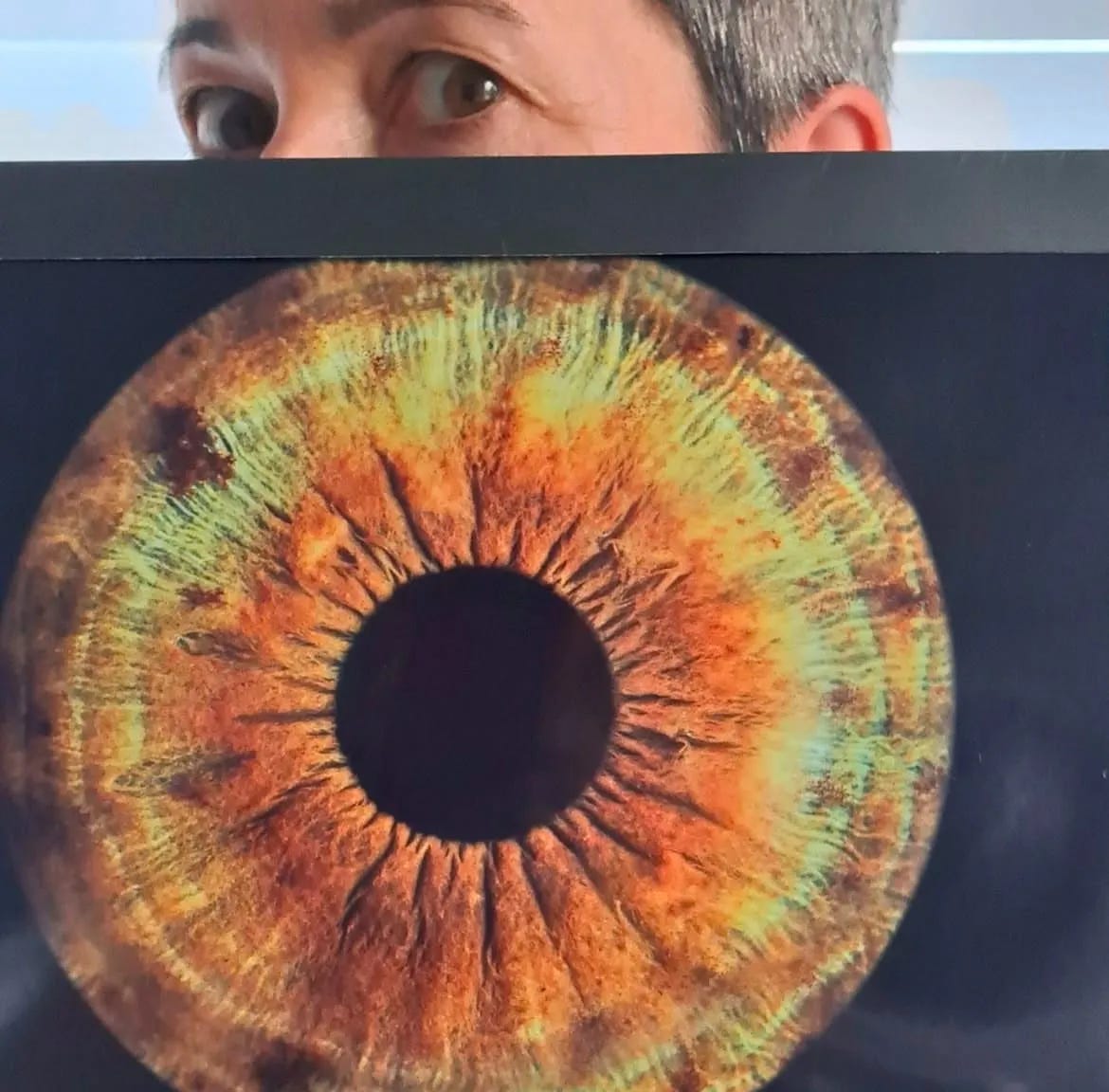


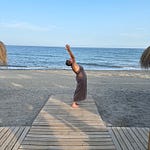

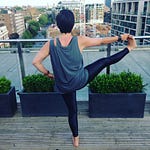
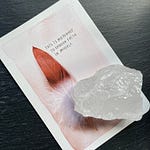
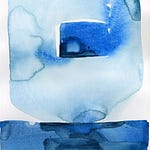
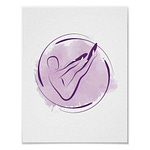
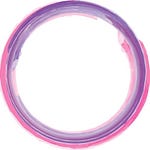
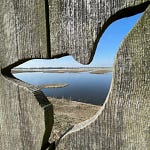
Share this post